Missionary Stories
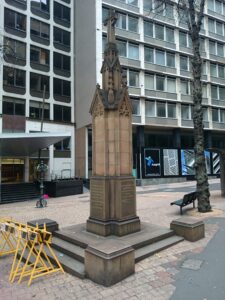
The Richard Johnson Memorial sits on the site of Australia’s first church.Far across the oceans, he stepped onto the shores of New South Wales. He didn’t know what lay ahead, but he had traveled the grueling eight-month voyage with a burden on his heart for the souls of the unwanted and unloved. At the young age of thirty-three, Richard Johnson had responded to John Newton’s plea and God’s call to be the first missionary to the penal colony of Australia.
After twelve years of service, Johnson was advised to return to England due to severe health problems. Not much is said about what happened to Johnson after his return; one might say he disappeared into the pages of history. One thing we do know is that Johnson was faithful; he was faithful to continue proclaiming the gospel of Christ and faithful to let men know that Jesus was the only way to life eternal in heaven. Records show that at least two hundred souls were saved in the twelve years Johnson spent in New South Wales, and even after he left, Johnson’s ministry continued.
We may become weary in the work God has given us to do. The future may seem bleak and the labor monotonous, but stay steadfast!
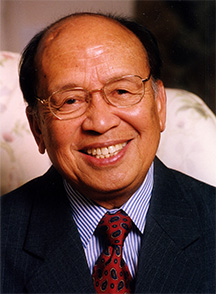
Rochunga Pudaite 1927-2015“My grandfather was a headhunter. But by God’s grace, today I am a heart-hunter.” -Rochunga Pudaite
Determined to see more of the village won for Christ, little Ro set out and began witnessing to the renowned ‘wild’ people of the Teisieng village in Manipur, India. With a heart full of prayer and fierce determination, Ro went to the first home. The man wanted nothing to do with the ‘dead man Jesus’. Most Christians would have walked away downhearted, but a little boy with a fire in his heart was not so easily deterred. He marched to the next house; his hands clenched in determination. Around a fire, three men sat, and to Ro, they were like three giants needing to be felled. Standing silent for a moment, he gathered his courage and asked permission to proclaim the name of Jesus. “WHERE IS MY DAO?” a man shouted as he sprang to his feet.
Ro’s eyes widened as he realized what was happening. A dao was a knife used by mountain people for generations for many things, but one use was head hunting. Ro turned and ran out of the house and down the road. He heard someone calling to him asking him to wait, but he dared not stop, lest he be killed. But his short legs were no match for a grown man and he was soon overtaken. “Someone from another village has been coming around and telling me about Jesus, and I wish to hear more. Come with me and tell me about Jesus,” the man begged him.
Ro feared this was some sort of trap, but he trusted that the Lord would go with him. For an hour he spoke the name of Jesus to the man, who eventually said these words, “I want to give my name to Jesus.” Ro knew that this was the real thing; the man was giving himself completely to the Lord. He was the first Christian, the first follower of Jesus, in this so-called wild village. Rochunga’s heart was filled with joy and rejoicing. He had led his first soul to the Lord.
God took this young man with a heart for the Hmar people of India and used him to translate the Bible into their language. Rochunga Pudaite came from a village of former headhunters and let the Lord use him in a way that no one thought possible. God is a God of extremes; He can use the least of the least for His honor and glory.
Through God we shall do valiantly: for he it is that shall tread down our enemies. —Psalm 60:12
(For further information about Rochunga’s story, read God’s Tribesman by James and Marti Hefley. Watch Beyond the Next Mountain, a film about Rochunga on YouTube.)
Winter 2019-20
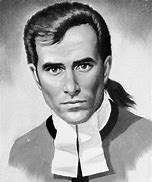
David Brainerd Missionary to the American Indians 1718-1747
With a cry of pain, the horse lurched forward causing her master to topple to the ground. David Brainerd stood, brushed himself off, and looked to see what had happened. The mare lay in agony on the ground, her leg snapped in two. David was beyond despair as he knew the inevitable must take place. With two Native Indians and a fellow missionary looking on, David raised his weapon and killed the faithful horse. He and his travelling companions then trekked thirty miles to the next house.
Such was the life of a young man who gave his life to see others won to Christ. Literally working himself to death, David Brainerd made it a point throughout his life to see to it that men, women, children, old and young, could have a chance to know Jesus.
David Brainerd was a young man with a heart for missionary work. He once said, “I never, since I began to preach, could feel any freedom to enter into other men’s labours and settle down in the ministry where the Gospel was preached before.” He wanted to do something for God that had never been accomplished.
After spending much time as a young man struggling with his salvation, he gave himself to prayer and sought the face of God to know how he might be saved. On July 12, 1739, while walking in the forest, David Brainerd gave his heart to the Lord and was gloriously saved. He became a zealous and fervent witness for his Lord. Although at times he suffered from depression, self-pity, and loneliness, he always righted himself in the Lord.
When his desire to serve the Lord returned, he was too zealous for some, and after calling his Yale professors less than zealous, he was expelled. After battling disappointment and bitterness, he learned to give it to the Lord, and he instead devoted his life to God’s service. An excerpt from his life journal reads, “I hardly ever so longed to live to God and to be altogether devoted to Him; I wanted to wear out my life in his service and for his glory.”
Although his ministry was full of many heartbreaks, hardships, sicknesses and unexplained difficulties, David Brainerd served the Lord for five years with over one hundred converts. He also did some Bible translation into an American Indian language. When ill health incapacitated him, he returned home and spent his last days with the Jonathan Edwards family. Even then his zeal was infectious. At the young age of twenty-nine, David Brainerd breathed his last on this earth. And as he entered heaven’s portals, may we not say he was eagerly welcomed?
God takes what we think is of little worth and uses it for His honour and His glory. He can use the weak or the sometimes depressed to serve Him. So, dear Christian, do not give up. Keep serving the Lord! He will be everything that you need!
Fall 2019
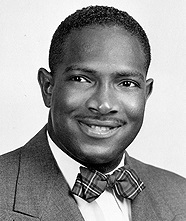
1925-1987
“The time: Sunday morning. The place: Ibadan, Nigeria. Dozens of youths and young adults arrive at the Christian Center. They come by bus, taxi, bicycle and foot from different parts of this city of two million residents. Dressed modernly, they “chat” heartily among themselves …
“Anyabonouwe starts the Bible class with hymn singing. Oladipo leads in prayer. Adebayo conducts the sword-drill. Young people take turns singing solos, duets, trios, and quartets. Finally, Akeju delivers the message; the audience ably follows with open Bibles.
“What’s unusual about these young people or the meeting itself? At least two facts. All are deaf! And instead of normal sounds, everything is rendered eloquently in the sign language of the deaf, plus speech by some. Yes, here is a deaf young generation in West Africa learning and sharing the Word of God!”1 These are the words of deaf missionary to Africa, Andrew Jackson Foster.At the age of eleven, while living in the Ensley neighborhood of Birmingham, Alabama, Andrew contracted spinal meningitis and became permanently deaf. After attending the Alabama School for the Colored Deaf, he moved to Detroit to find better employment, and it was there that he decided to live his life for God. Foster earned two bachelor’s degrees and one master’s degree from three different universities, then God directed him to the African continent. Because no mission board would accept him, Foster started his own, the Christian Mission for Deaf Africans (later called Christian Mission for the Deaf).
When Andrew Foster arrived in West Africa, he noticed that the deaf he came in contact with were not literate in signing or reading, making it hard to witness abstract truths to them. He put all his effort into starting thirty-one schools for the deaf in fifteen West African countries. The goal of each school was to educate deaf Africans in sign language and reading so that they could “hear” and read God’s Word. Sadly, Foster’s life was cut short at age sixty-two by a plane crash in Rwanda, Africa.
Foster had been told there were no Deaf in Africa, but he rejected that ridiculous information. God used him to persevere and find the hidden treasure of deaf souls in Africa. It is said that his favorite verse was Isaiah 29:18: “In that day, shall the deaf hear the words of the book.”
Andrew Foster is a great example of one who sees an important, unaccomplished task, disregards personal limitations, and by the grace of God does great things. His example is being followed today by others who are going to foreign lands in search of the unreached Deaf. There is no country on earth where missionaries to the Deaf are not desperately needed. Pray ye therefore!
1Roots out of a Dry Ground by Dr. Andrew Foster
by Hanna Schrock
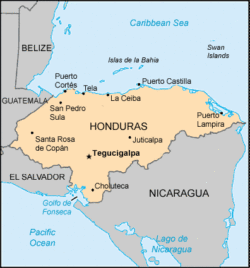
Doña Mariana kept track of each new baby born in her town so that she could guide the priest to their homes when he came to baptize. She thought this would secure them entrance into heaven. Once, when she sent for the priest, he sent a message back that he could not come because the last time he came they did not pay him enough. He did his job only for physical reward.
John Ruddock was a man willing to sacrifice himself for the cause of Christ. Born in Growell, Ireland, on December 17, 1897, and born again in September 1918, John Ruddock spent much time passing out tracts and joining in open-air meetings. Shortly after moving to Los Angeles, California, he saw the need for the Gospel among the Mexicans of that city. He began working with Mexican children in his spare time and hoped that one day he could serve the Lord in Mexico. Through his faithfulness to share the gospel with the Spanish-speaking people, he met his wife, who was also interested in Spanish-speaking people. John and Nettie Ruddock left Los Angeles for Guatemala in 1926. While there, they heard of a great need for the Gospel in Honduras.
Serving God in Los Angeles, Guatemala, and eventually Honduras was not without sacrifice. During their fifty-two years of trailblazing through Central America, sleeping conditions, bugs, housing, travel, and other encounters were not always ideal; but John and Nettie did not complain. They knew that reaching people for Christ would require sacrifice, and they did not go out expecting or seeking their own comfort. Though they encountered many difficulties, God always provided, and they chose to trust God to take care of their family. John chose to live like the people and to suffer what they suffer in order to reach them for Christ. He spent many days in Honduras traveling (by train, canoe, or on foot) to spread the good news of the Gospel. He spent hours with people sharing the Gospel of Christ, and his effort was not in vain. He did not suffer for his own profit, but to reach lost souls with the Gospel.
John speaks of one young man whose mission agency required him to baptize babies. When he could not agree and the mission could no longer provide his support, he decided to look for a job elsewhere rather than to stay in Honduras. He could not take the step of depending on the Lord for guidance and support.
What do you need to serve God? Do you need guarantees of how things will work out or that your needs will be provided? Do you need something to fall back on in case things don’t work, or do you trust God to provide and to lead? Are you willing to sacrifice for the cause of Christ to spread the gospel so souls can be saved? What if it’s not comfortable? What if there are uncertainties? Are you willing to follow God anywhere He leads you? To do anything He tells you? Oh, that more Christians were available and ready to suffer for the cause of Christ and to share the gospel with lost sinners!
Read the entire story in Lighting the Mosquito Coast by Barry Colman.

“Nothing was to enter into his life unpenetrated by its central enthusiasm—Preaching the Gospel of Christ.”
Such was George Hunter. He knew his God and nothing anyone could say or do shook his testimony or moved him from his one statement: “I am here solely to preach Christ crucified.”
Known as the “Lonely Warrior,” George Hunter lost many of those dear to him, including his mother, the woman he loved, and his best friend and coworker. As a young man he had a strong desire to be a missionary, and although he was rejected by the China Inland Mission after his first offer of service, he did not give up. He applied a second time and was accepted.
He arrived in China in 1889 and possessed an irresistible instinct to visit lands where he found no foundations laid by another man. Realizing that the only way to reach the traveling tradesman and nomadic peoples would be to become like them and to travel with them, he journeyed across the Gobi Desert. He was recognized as a man who, having received an inward call, could not be restrained from answering it. He became known as the “Scotsman of the Gobi,” preaching everywhere he went and spreading the Gospel in both oral and written form.
During a missionary conference, he noted sadly that “too much of the Conference was concerned with those parts of China which are largely evangelized, while vast fields outside this sphere were not very much referred to.” He noted that God’s open doors are frequently overlooked, and only when the opportunity has passed do mission authorities appeal for prayer and for ventures of faith to enter closed lands. He realized the urgency of entering the open door while it remained open and of buying up the opportunities rather than just talking about them.
George Hunter was passionate about preaching Christ to men and women who had never heard His name. Realizing the urgency of getting the Scriptures into the hands of every tribe in Central Asia, he translated Scripture portions, as well as a number of other books, into several of the nomadic languages and spent the majority of forty years traveling over rough terrain to get God’s Word into the hands of people. His life of pioneering with Good News for everyone was a daily thrill, for his was the privilege of leaving behind the Book which is God’s message of reconciliation to man.
Eventually known as the “Apostle of Turkestan,” George Hunter was said to be always on duty; the results of his wide-sowing of the seed of life are immeasurable. He was a true Christian, for he was Christ obsessed. Imagine the impact that could be made if more such people might be found in the missionary force where too few are prepared to pay the cost involved, and some even resent the fact that such a price should be required of them.
Quotations: George Hunter: Apostle of Turkestan by Mildred Cable

Mike Patterson was born in Fort Worth, Texas, in 1948. He felt his calling into the ministry in 1964 and his call to the mission field of Mexico in 1974. Brother Mike and his wife, Becky, have been serving together as missionaries in Mexico for forty-four years. (That doesn’t count the thirteen years that Becky spent growing up in Mexico and Costa Rica as the daughter of missionary Dr. Ralph McCoy.) Besides the work of church building and directing a children’s home, Mike has preached in many conferences in which more than four thousand people made full-time commitments to the ministry. He served as president and director and is now president emeritus of Mount Abarim Baptist Mission International which reaches into twenty countries. God has used these servants to truly impact the world.
When they began their ministry in Mexico, Mike and Becky held church services in their small living room. This church grew to be one of the largest and most influential Baptist churches in Mexico today, Mount Abarim Baptist Church. Mike chronicled his life stories of mission work in Mexico and published them in his book, My People. One heart-touching story is “Breaking Rocks.”
Mike watched as his friend, Rafael, continually swung a sledgehammer at a massive boulder. The purpose was to break the rock so that they could use the smaller pieces in a building project. The boulder did not crack under the pounding, but Rafael kept his pace steady. Then, all at once, the boulder burst into smaller, usable portions. Although nothing could be seen on the outside of the boulder, Rafael knew that he would soon crystallize the center. After the center was crystallized, the boulder could be crushed by a single blow of a twelve pound sledgehammer.
Brother Mike said that his work in Mexico was a lot like Rafael’s. “Much of the time we swing our hammer with little to show for it but a thud and little puff of dust.”
We Christians witness to non-believers and hope that we are getting through to them so that they can spend eternity in Heaven with God. Time and time again, nothing seems to change. Once again we talk to them, and they begin understanding a little. Then once more, and finally a breakthrough occurs; a lost soul comes to Christ. The question is: “Have you been letting God use you as his hammer to crystallize the souls of the lost?”
Mike’s book, My People, is available on Amazon and other outlets and would be a great devotional book for your family or church. As you read these short stories you will laugh and cry. And you will thank God that people like Mike and Becky go to the mission field.
Fall 2018
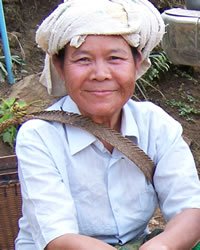 The Karen tribe was the lowest class in Burma. Called the “wild men of the jungle,” they were oppressed and despised but were not without hope. They had a cultural legend that a messenger from across the sea would bring them the lost book written by the Creator-God.
The Karen tribe was the lowest class in Burma. Called the “wild men of the jungle,” they were oppressed and despised but were not without hope. They had a cultural legend that a messenger from across the sea would bring them the lost book written by the Creator-God.
George Dana Boardman was born in Livermore, Maine, in February 1801, and was the son of a Baptist pastor. Sarah Hall was born in November 1803, and converted as a teenager. Both George and Sarah were burdened for the lost, especially those in Burma; this common interest brought them together. They were married on July 3, 1825, and thirteen days later sailed to Calcutta, India, where they served for nearly two years. In March 1827, they moved to Amherst, Burma, to assist missionary Adoniram Judson. God was about to send them to the Karen.
Ko Tha Byu, of the Karen tribe, was born c. 1778. He became an outcast of the outcasts, a leader of criminals. By his admission he killed or assisted in the murders of at least thirty people. Ko Tha Byu was sold into slavery because of a debt he couldn’t pay, was purchased by a Baptist preacher who wanted to help him, and (under the ministry of Judson) was finally redeemed by the blood of Jesus. The Creator-God was preparing him to reach his people.
When the Boardmans relocated to Tavoy, Burma, Ko Tha Byu accompanied them. This principal city and Buddhist stronghold had 9,000 residents and nearly 1,000 pagodas. Among the Burmese they saw only a few come to Christ, but the nearby Karen group seemed anxious to hear the gospel. They saw the messengers as a fulfillment of their legend, and soon many were coming to faith in Christ.
In February 1831, Boardman was asked to take part in a baptismal service in a distant Karen village. Though very sick, he and Sarah agreed to make the three-day trip. Too weak to walk, the believers carried him in a litter on their shoulders. Upon arrival, he found about one hundred believers; nearly half were candidates for baptism. The day following, they began the long trip back to Tavoy, but he never arrived. Near the end of the second day, he passed into eternity. Upon hearing of his death, Judson wrote in his journal, “Dear Brother Boardman has gone to his eternal rest. He fell gloriously at the head of his troops, in the arms of victory. . . ”
George Boardman lived barely thirty years. His missionary service lasted only six years. But he was greatly used as a messenger from over the sea to bring the lost book of the Creator-God to the Karen people. In 1910 there were 774 Karen churches with 50,000 members.
Source: This Day in Baptist History, by David L. Cummin, Vol. 2, 3
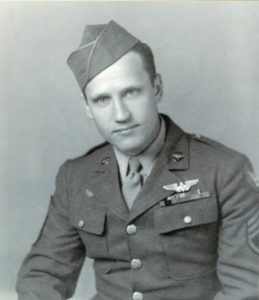
On April 18, 1942, Corp. Jacob DeShazer of Col. Doolittle’s raiders was the B-25 bombardier on the last plane to leave the aircraft carrier USS Hornet. They were on a bombing mission to avenge the attack on Pearl Harbor. The plan was to hinder the advance of the Japanese army and show them that blind faith in the emperor-god Hirohito and his guarantee of success was unfounded.
Jacob grew up in a devout Christian home but didn’t think the Bible was for him. He had volunteered for this mission, but as they neared Japan he wondered about his possible death and eternal destiny.
Prior to take-off, his plane, the Bat Out of Hell, was damaged. A hole in the fusalage slowed the plane, causing increased fuel consumption. Their target was Nagoya, south of Tokyo. They successfully bombed an oil refinery, a gasoline storage facility, and a large factory. They then headed for the safety of Choo Chow Lishui, China, but ran out of fuel and were forced to parachute from the plane. (Incidentally, at the exact time Jacob was descending into a Japanese occupied area of China, his mother awoke and earnestly prayed for her son!) For the next forty months, he and his crew were prisoners of the Japanese. Nothing in this world could be worse than the horrors of Japanese prison life. Thirty-five percent of POWs died of disease, torture, starvation, or forced labor. Many were decapitated or killed by bayonet; some simply gave up and died.
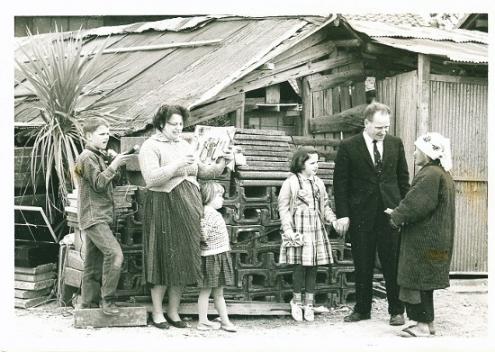
Not surprisingly, Jacob was full of hatred. Most guards were sadistic and extremely cruel, but there were rare exceptions. In May 1944, while in solitary confinement, Jacob was given a Bible by a guard. He was allowed to keep it three weeks, and he read it constantly. A fellow prisoner, Lt. Robert Meder died in captivity, but he had been a good testimony before DeShazer. Now the Bible was working on him! On June 8, 1944, he trusted Christ.
Before his release on August 20, 1945, he felt an overwhelming love and sympathy for the Japanese people and a great desire to tell them of Christ. After the war, General Douglas McArthur, seeing the Japanese’s disillusionment in their emperor-god, issued a plea for one thousand Christian missionaries to teach them about the true God. DeShazer was already planning to return to Japan to do just that!
Jacob was much in demand as a public speaker. People wanted to hear of his POW experience and his conversion. He married Florence Matheny who would serve thirty years beside him in Japan. On December 8, 1948, six years and eight months after boarding the USS Hornet to bomb Japan, DeShazer boarded the USS General Meigs to deliver Bibles. More amazing than DeShazer’s conversion is that of Mitsuo Fuchida who was saved after reading a tract of the DeShazer story. Fuchida had led the 353 plane attack on Pearl Harbor. He and Jacob became dear friends and traveled together preaching the gospel.
Envision yourself living in a tiny room, furnished with one stool. The only heat you can obtain is by burning animal waste in an iron stove. You have ample funds in the bank to sustain your hungry family, but you can’t access the money. You are friendless and stuck in a foreign country with little hope of getting home. As a child of God, what would your attitude be?
Arthur and Wilda Matthews were serving in China with the China Inland Mission when the Communists began forcing Westerners to leave the country in 1950. However, a church in Northern China invited the Matthews to work with them. Believing it to be God’s will, Arthur and Wilda stayed. They soon discovered that the situation was not as it had seemed. The Chinese were afraid to associate with them, and the government forbade them to preach or go out among the people. Since their presence was only endangering the Chinese church, the Matthews requested exit permits.
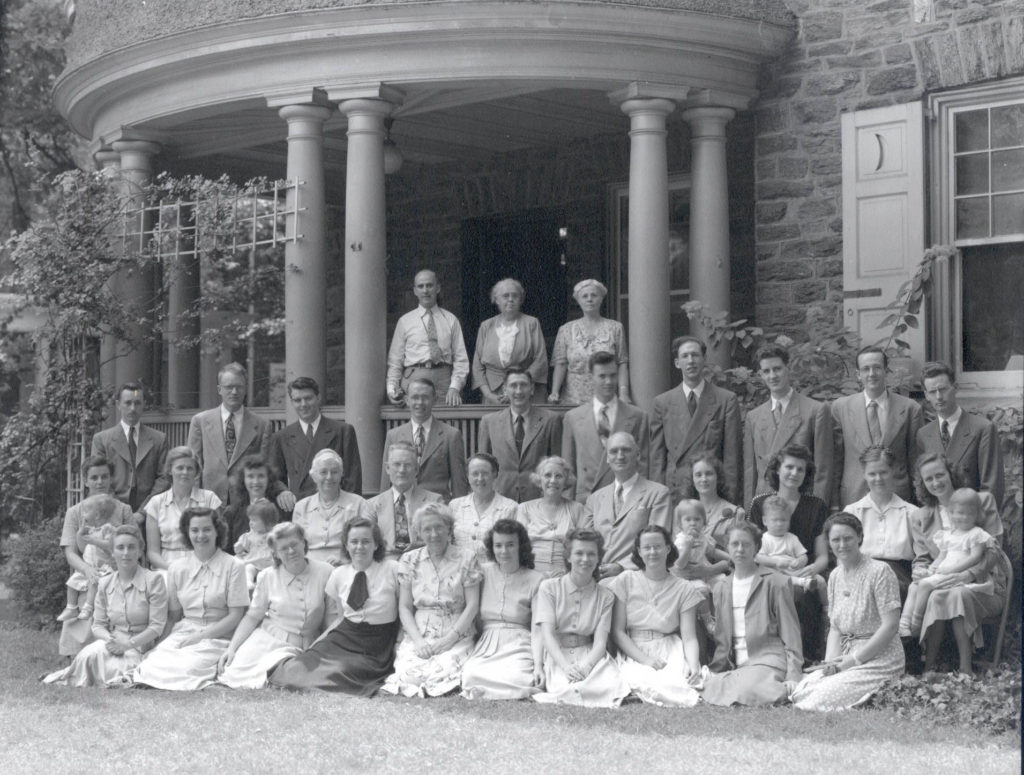
In the meantime, these missionaries found themselves in the situation previously described. What was their attitude? At first, they were determined to steadfastly endure their afflictions, knowing that God was in control. But gradually, the Matthews realized that trials are not sent to simply be endured, but to demonstrate in us the joy of complete obedience. Arthur Matthews wrote four things that encouraged his family during their time of testing: 1) God brought me here. It is by his will I am in this difficult place, and in that fact I will rest. 2) He will keep me here in his love, and give me grace to behave as I should. 3) He will make the trial a blessing, teaching me the lessons he intends for me to learn. 4) In his good time he can bring me out again—how and when, he knows.
God did bring them out. After two years, Wilda and their daughter, Lilah, were permitted to leave. They sailed to America where they waited until Arthur was finally released. Truly God was faithful to His own.
The Matthews’ trials were far from pointless; a loving heavenly Father planned that their very lives preach the message they were forbidden to speak. “The message above all others which the Chinese church needed was to see the truth lived out under circumstances equally harrowing with their own.”1 Be ye stedfast, unmoveable, always abounding in the work of the Lord, forasmuch as ye know that your labour is not in vain in the Lord.
1 Read the entire story in Green Leaf in Drought-time, by Isobel Kuhn.
“And let him that heareth say, Come. And let him that is athirst come. And whosoever will, let him take of the water of life freely” (Rev. 22:17).
I wonder if the two evangelists from North Ireland ever learned of the full effects of the meeting they held in Inverary, Scotland, in November of 1859. For in their audience sat a wild young man of eighteen who came to break up the meeting but found himself compelled to accept their offer of Living Water. Because of hearing the call to come, this young man, James Chalmers, was saved a few days later.
Born in a small fishing village in Scotland in 1841, young James loved adventure and welcomed danger. In this we see God preparing Chalmers for the pioneer missionary work awaiting him. After his salvation, he knew he must tell others of the Living Water that had quenched his thirst. James and his wife, Jane, set sail for the South Sea Island of Rarotonga on January 4, 1866. The Chalmers worked there for ten years, but James’ heart was set on preaching Christ in unreached regions. So, in September of 1877, James reached his permanent field of service—Papua New Guinea.
His work was slow, but not unfruitful. Many natives, after hearing the preaching of the Gospel, laid aside their pagan beliefs and the gory rites of cannibalism to drink of the Living Water that Jesus gave. However, danger was predominant in this savage land. On one occasion, while traveling with a native teacher, Chalmers was followed all day by two bands of cannibals. Chalmers asked the teacher what they were saying. “They are saying they intend to kill us. Let us kneel and pray!”
“No, no!” James answered. “Let us walk and pray.” One cannibal followed directly behind James, his club ready to fall, but God protected his missionary, and the native never struck.
Chalmers served our Lord faithfully until he was killed and eaten on April 8, 1901, while working to quench the thirst of the cannibals he loved. Thousands of souls today are still thirsting. Let us follow the footsteps of James Chalmers, and give our all to take the Water of Life to the uttermost parts of the earth!
NOTE: Chalmers was born in 1841, and died in 1901. He served on the field from 1886 until 1901.
Watching a missionary’s slide presentation, eleven-year old Mary Baker knew she would be a missionary. The first person she told responded, “Oh, Mary, did those pictures of the Africans bother you? They almost bothered me, too. But you’ll forget about them. ” Though she needed years of preparation, Mary forgot neither the pictures, nor the burden God had placed on her heart. He had called her to Africa, and nothing would dissuade her.
Mary’s first year in Africa, 1948, was filled with teaching literacy, Bible stories, and, most importantly, the Gospel. After a year of teaching at various mission stations, the field council sent Mary to Chad, where she would spend the next three decades of her life.
Though a single lady, Mary never lacked children to care for—or a ministry to occupy her. Eventually, Mary raised five boys as her own sons. She taught hundreds of young people in Bible classes and her home became a Bible study center where eager young Africans gladly received the literature she gave her visitors. On one occasion, Mary shared dinner with one of the highest-ranking generals in the Chadian army. Afterwards, the general and his staff listened as the local pastor taught a Bible study. Many of her students eventually held government office or became leaders in the African church.
In 1973, rumblings of unrest grew into a cultural revolution that ripped through Chad as animistic tribal rites regained prominence. Mary and the other missionaries were uneasy about the situation, but it came as a shock when they were served with deportation papers. Back in the States, Mary could only grieve from a distance at being forced from her Chadian home, until sudden news came that a coup had killed the president and the country was open to missionaries. Eagerly, she purchased an airline ticket to Chad.
A royal greeting awaited her at the airport. Mary restrained tears for those martyred during the revolution, and smiled at the Chadians who rejoiced to have “our pretty mother” back again. She was happy, but it was harder and harder to keep up with the demands of the work. The Chadians wholeheartedly welcomed her brother and sister-in-law as replacements. Mary returned from foreign missions, but didn’t retire. She presented the need for missions in churches around the United States and remained active in various ministries until poor health forced her to slow down in 2006. On September 7, 2007, Mary Baker passed into the presence of the Lord. She hadn’t forgotten.